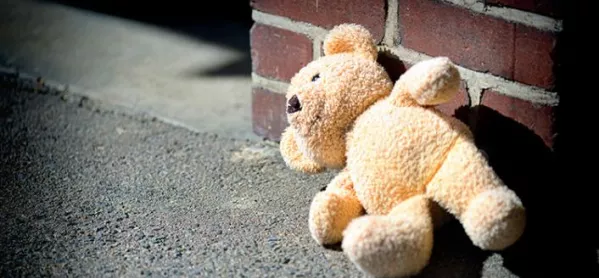‘Vital’ schools given ‘seat at safeguarding table’, says review

There is a “compelling argument” for the inclusion of schools as a safeguarding partner, a national review into the murders of Arthur Labinjo-Hughes and Star Hobson has found.
The report, published today, says that the involvement of schools, colleges and other education providers in safeguarding needs to be “reconsidered”, and that there must be “full involvement” of schools at both the “strategic and operational level”.
It adds that, although including schools as safeguarding partners poses “practical challenges”, these are not “insurmountable”, and that it is “vital” that schools are given a “seat at the table”.
The recommendation echoes one made in the Independent Review of Children’s Social Care, published on Monday, which called for schools to be included as a statutory safeguarding partner.
The review, conducted by the Child Safeguarding Practice Review Panel, found that the fatal abuses suffered by Arthur, six, and Star, 16 months, “are not isolated incidents”, but reflective of wider problems to do with poor information sharing and weak decision-making by public bodies.
It was commissioned in December 2021 by education secretary Nadhim Zahawi following the deaths of Arthur and Star, to look at what could be done to prevent things from going so “horrifyingly wrong” in the future.
Arthur was murdered in June 2020 by his stepmother at their home in Solihull. His father was also found guilty of his son’s manslaughter.
- Dame Rachel de Souza: Why it’s right to include schools in children’s social care overhaul
- Social care review: ‘Teachers should foster vulnerable pupils’
- Covid: How the pandemic led to a renewed focus on safeguarding
Arthur was not attending school during the first Covid lockdown from March 2020, because he had not been classified within the group of vulnerable children identified as needing to be in school.
Star was murdered by her mother’s girlfriend at her home in Keighley, West Yorkshire, in September 2020. Star’s mother Frankie Smith, 20, was found guilty of causing or allowing the child’s death.
The report says that schools, colleges and other educational settings “have a pivotal role to play in protecting children. In seeing children every day, they are in a unique position to identify concerns early [and] to recognise when concerns are escalating”.
It notes that, at present, safeguarding partners are expected to name schools, colleges and other educational settings as “relevant agencies”, but that “it is then for safeguarding partners to determine how they engage and involve educational settings overall, and individual institutions specifically, in their local arrangements”.
The review recommends: “The Panel believes the involvement of schools, colleges and other education providers needs to be reconsidered and there must be full involvement of schools and education services at both the strategic and operational level.
“There is a compelling argument for their inclusion as a safeguarding partner.”
Safeguarding partners are a team of key professionals from three sectors: the local authority, the Clinical Commissioning Group (CCG) that falls under the local authority, and the chief officer of police for any area under the local authority.
Partners are responsible for implementing safeguarding strategies to improve multi-agency working and safeguarding in the area.
Speaking about the findings of the review today, education secretary Nadhim Zahawi said: “We must waste no time learning from the findings of this review - enough is enough.
“I will set up a new Child Protection Ministerial group, a first and immediate step in responding to these findings, before setting out a bold implementation plan later this year to bring about a fundamental shift in how we support better outcomes for our most vulnerable children and families.”
In a ministerial statement today, he added: “I will consider the recommendations from the Panel’s National Review and those from the Independent Review of Children’s Social Care and respond in full before the end of this year when we will publish a bold implementation strategy incorporating the recommendations.”
You need a Tes subscription to read this article
Subscribe now to read this article and get other subscriber-only content:
- Unlimited access to all Tes magazine content
- Exclusive subscriber-only stories
- Award-winning email newsletters
Already a subscriber? Log in
You need a subscription to read this article
Subscribe now to read this article and get other subscriber-only content, including:
- Unlimited access to all Tes magazine content
- Exclusive subscriber-only stories
- Award-winning email newsletters
topics in this article



